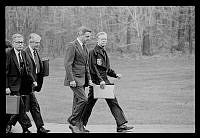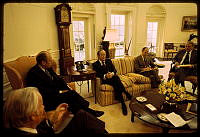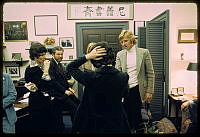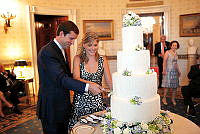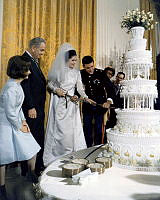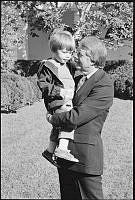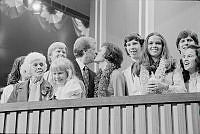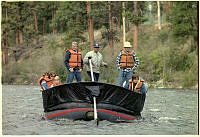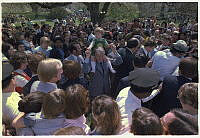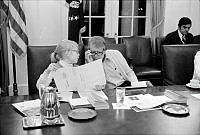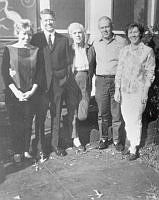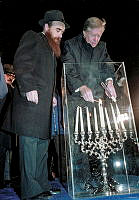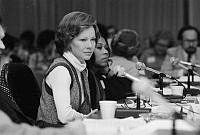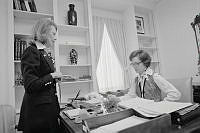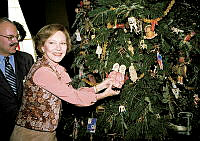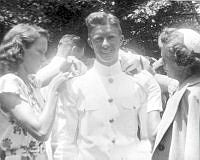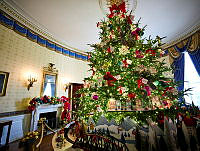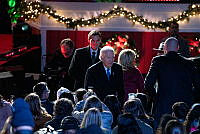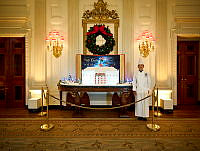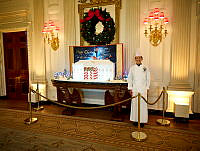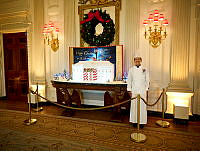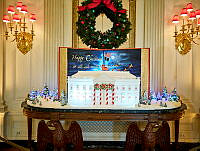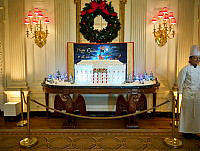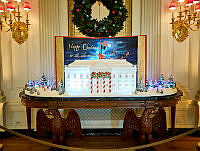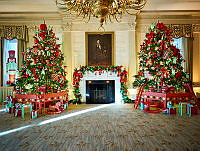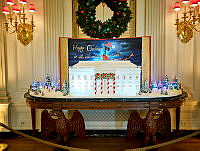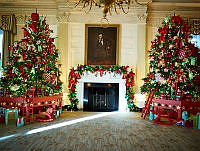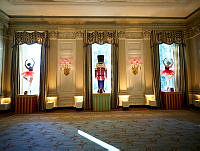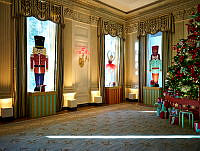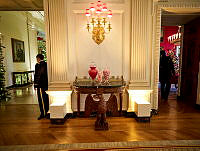Rutherford B. Hayes

Beneficiary of one of the most fiercely disputed and controversial elections in American history, Rutherford B. Hayes brought to the Executive Mansion dignity, honesty, and moderate reform. To the delight of the Woman's Christian Temperance Union, Lucy Webb Hayes carried out her husband's orders to banish wines and liquors from the White House. The couple, married since 1852, had eight children together.
Born in Ohio in 1822, Hayes was educated at Kenyon College and Harvard Law School. After five years' law practice in Lower Sandusky, he moved to Cincinnati, where he flourished as a young Whig lawyer.
He fought in the Civil War, was wounded multiple times, and rose to the rank of brevet major general. While he was still in the army, Cincinnati Republicans ran him for the House of Representatives. He accepted the nomination, but would not campaign, explaining, "an officer fit for duty who at this crisis would abandon his post to electioneer . . . ought to be scalped."
Elected by a heavy majority, Hayes entered Congress in December 1865, troubled by the "Rebel influences . . . ruling the White House." Between 1867 and 1876, he served three terms as governor of Ohio.
Hayes became a viable Republican candidate in 1876, as delegates held him in high regard for his integrity, party loyalty, and war record. He ran against Democratic candidate Samuel Tilden of New York, who won the popular vote but disputed results in Louisiana, South Carolina, Florida, and Oregon ensured that neither candidate had a majority of Electoral College votes. Conflicting electors sent votes to Congress, which only added to the confusion.
Months of uncertainty followed. In January 1877 Congress established an Electoral Commission to decide the dispute. The commission, made up of eight Republicans and seven Democrats, determined all the contests in favor of Hayes by eight to seven. The final electoral vote: 185 to 184. Northern Republicans had been promising southern Democrats at least one cabinet post, federal patronage, subsidies for internal improvements, and withdrawal of troops from Louisiana and South Carolina.
Hayes insisted that his appointments must be made on merit, not political considerations. For his cabinet he chose moderate politicians of high caliber, but outraged some Republicans because one member was an ex-Confederate and another had bolted the party as a Liberal Republican in 1872.
Hayes supported African Americans’ right to vote and insisted that southern Democrats recognize and uphold their civil rights. However, once federal troops were removed from Louisiana and South Carolina, Republican resistance crumbled and Democrats reclaimed political power across the South. They disenfranchised Black voters through literacy tests and poll taxes, using coercion and violence to oppress African Americans.
Many of the leaders of the new South did indeed favor Republican economic policies and approved of Hayes's financial conservatism, but they faced annihilation at the polls if they were to join the party of Reconstruction. Hayes and his Republican successors were persistent in their efforts but could not win over the "solid South."
Hayes had announced in advance that he would serve only one term, and retired to Spiegel Grove, his home in Fremont, Ohio, in 1881. In his later years, he supported universal education, improving prison conditions, and assisting veterans with their pensions. He died on January 17, 1893.













